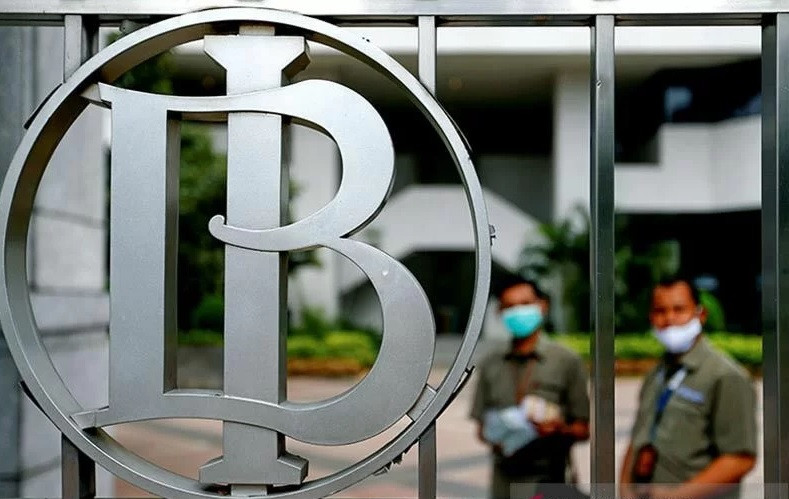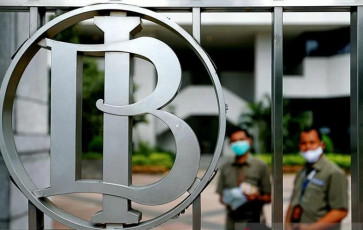Popular Reads
Top Results
Can't find what you're looking for?
View all search resultsPopular Reads
Top Results
Can't find what you're looking for?
View all search resultsPolicy rate seems to be the last choice
BI is trying to utilize all the instruments it has to achieve currency stabilization.
Change text size
Gift Premium Articles
to Anyone
B
ank Indonesia (BI) met analysts’ expectations by deciding last week to uphold the BI 7-day reverse repo rate at 3.5 percent, the deposit facility interest rate at 2.75 percent and the lending facility at the level of 4.25 percent, which had been assigned since February 2020.
A new development, though, was the recent BI sale of government securities (SBN) in the secondary market. Although the sale of securities is a common practice for central banks as part of monetary operations, it was the first time for BI since the COVID-19 outbreak spread in the country in early March 2020. The burden-sharing scheme mandates BI to buy SBN in the primary market to fund the state budget.
BI’s sale of SBN is also in line with the macroprudential policies and so was its decision in May to raise the ratio of the minimum reserves requirement (GWM) for banks to 9 percent in July and 12 percent effective as of September in order to control liquidity.
BI’s sale of SBN is faster than the original plan, while the burden-sharing scheme will be completed by the end of this year. This means that the monetary policy normalization scenario is initiated from the liquidity aspects.
The liquidity control options in the conceptual perspective make sense. Measures to tighten liquidity are needed to check the rate of inflation. According to the monetarist school of thought, the money supply is proportional to the price level. Therefore, reducing liquidity is a primary requirement for controlling inflation.
With the same logic, the sale of SBN will absorb the flow of funds from the financial market to BI. If the buyer of SBN sold by BI is a foreign party, foreign exchange flows will increase the foreign exchange reserves and strengthen the country’s external buffers. If the SBN buyer is a local player, the rupiah will go to BI. BI’s sale of SBN will also gradually raise SBN yields.
Up to this point, BI has been trying to utilize all the instruments at its disposal to achieve currency stabilization. Meanwhile, monetary policy through the benchmark interest rate is directed to support economic growth.



















